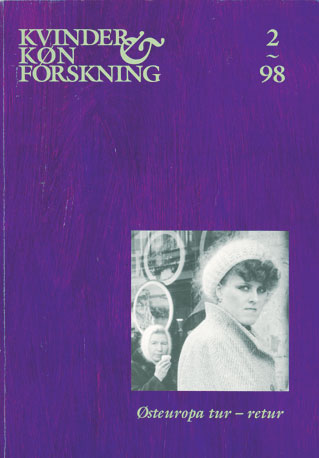Kvinder i Østtyskland før og efter den tyske genforening
DOI:
https://doi.org/10.7146/kkf.v0i2.28437Abstract
The reunification of Germany has occasioned a reconstruction of the former GDR. Several German scholars refer to a general process of modernization towards a modern society with a market economy, competitive democracy, mass consumption, and a welfare state. Various analyses, however, point to the fact that women stand to lose greatly in terms of unemployment, social status, income etc. If we compare the positions of women in East and in West Germany in relation to education, job market, and family, it appears that the women in East Germany had received a better education, and the percentage of women carrying out so-called men's work was higher. Their participation rate was very high, and the East German men attended to more family duties than did thair counterparts in West Germany. In consequence of the extensive social and cultural recontruction and reorganization of East Germany, these advantages are now decreasing. The women of East Germany are affected by unemployment surpassing the average rate, and they have great difficulty in regaining foothold in the job market once they have been dismissed. The phasing out of child-minding facilities and other state undertakings has made matters even worse. Further, women's poor position in the job market has impacted the work pattern in the home, where women are now taking care of a still growing number of duties. Finally, the risk of poverty is increasing for single mothers. The article concludes that the East German society may very well be going through a general process of modernization, but that it is equally important to note that this process has in fact had an anything but progressive influence on the lives of a larger group of women; to them this has proved a process of "demodernization".Downloads
Published
1998-04-29
How to Cite
Petersen, V. R. (1998). Kvinder i Østtyskland før og efter den tyske genforening. Women, Gender & Research, (2). https://doi.org/10.7146/kkf.v0i2.28437
Issue
Section
Articles
License
Publications in Women, Gender and Research are licensed under Creative Commons License: CC Attribution-NonCommercial 4.0

